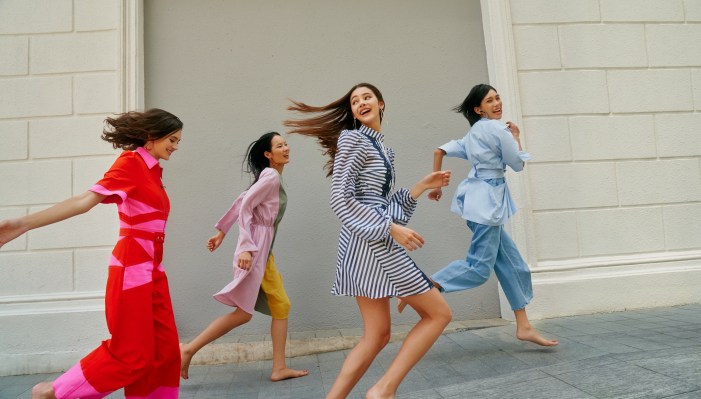Products You May Like
Style Theory, a platform for renting designer apparel in Indonesia and Singapore, announced today it has raised $15 million in Series B funding. The startup says this is the first closing of the round. It was led by SoftBank Ventures Asia, the early-stage venture arm of SoftBank Group, with participation from other investors including Alpha JWC Ventures and the Paradise Group.
Both SoftBank Ventures Asia and Alpha JWC Ventures are returning investors and previously participated in Style Theory’s Series A.
Founded in 2016 by Raena Lim and Chris Halim to counteract the waste created by fast fashion, Style Theory currently has more than 50,000 pieces of clothing and 2,000 designer bags in its inventory. In addition to its app, the company opened a flagship store on Orchard Road in Singapore last month. On average, Style Theory’s subscribers rent up to 20 pieces of clothing and two designer bags a month and it has delivered more than one million items since launching, its founders say.
Part of the funding will be used to further develop Style Theory’s tech platform. In an email interview, Lim and Halim told TechCrunch that Style Theory uses machine-learning algorithms to personalize clothing and fit recommendations for users based on their browsing and rental history and decide what designers and styles to carry to add. The startup also built a customized warehouse management system and distribution network that uses its own fleet of couriers to lower costs. In order to manage its inventory as the company scales up and expands into new markets, it plans to start using RFID tagging and will attach passive RFID tags on each of its rental items.
Lim and Halim say they plan to launch new apparel categories in Singapore and Indonesia before possibly expanding into more countries in 2020.
While Rent the Runway and Le Tote are the best-known fashion rental apps in the United States, Style Theory’s operating model has several key differences to serve the Southeast Asia market, Lim and Halim say. Longer hours means many customers are often not at home to receive deliveries. They also rely on public transportation more than most Americans. In order to make the service more convenient, Style Theory opened its brick-and-mortar store and partners with automated locker providers, coworking spaces and department stores. Its app includes different payment solutions, since the regions they serve have relatively lower credit card penetration rates.
Style Theory’s inventory is also picked with a diverse array of customers in mind.
“With the melting pot of cultures, we have to approach our merchandise mix with consideration to the different societal standards of formality and modesty in the workplace and social environment,” said Lim and Halim.
“Not only does our assortment have to serve the all-year tropical climate, with a seasonal selection for travel, we have to also meet the demands for the different cultural groups and customer preferences. We have introduced a line up of modest wear in Indonesia and more festive wear during the celebratory seasons in the year.”
In a press release, SoftBank Ventures Asia senior partner Sean Lee said “Fashion has emerged as one of the last frontiers of the sharing economy, and with an attractive business model, Style Theory has proven that the company can change the way people consume fashion in Southeast Asia. I am excited to support Style Theory’s expansion across the region as well as continuous disruption.”

